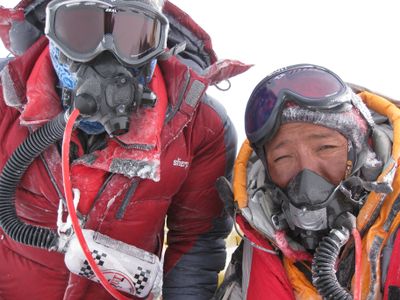The Sherpa role: Caregiving

My friend Kathleen entered a new world 11 weeks ago when her husband had a stroke that he is recovering well from. But Kathleen, a retired nurse in her 60s, has learned so much she didn’t know about the caregiving role. Here are some things she learned that she gave me permission to pass on:
- Caregivers are like sherpas to mountain climbers. The climbers get all the attention and praise while the sherpas do so much of the heavy lifting. Her point: Appreciate the sherpa, too. They are climbing the mountain as well. And carrying a huge pack of responsibility.
- Offer to help only if you mean it and can do something and then tell the caregiver the times you are available and what you might do to help. Kathleen’s husband is able to go into work a couple of hours a day, but he can’t yet drive himself. This is one example of where a specific action — driving her husband to work - would help.
- Quit saying they both look great. They do. But people can physically look good and feel like crapola inside. When you tell them they look good, it comes off as you “look good so you should be back to 100 percent.” They are not. They are climbing the very steep mountain.
- Drink lots of water. It helps with anxiety.
- Be aware of caregiver grief. Their lives change, often forever. And they are experiencing all the emotions associated with grief — anger, depression, sadness.
(S-R archive photo of two Mount Everest sherpas)
* This story was originally published as a post from the blog "EndNotes." Read all stories from this blog